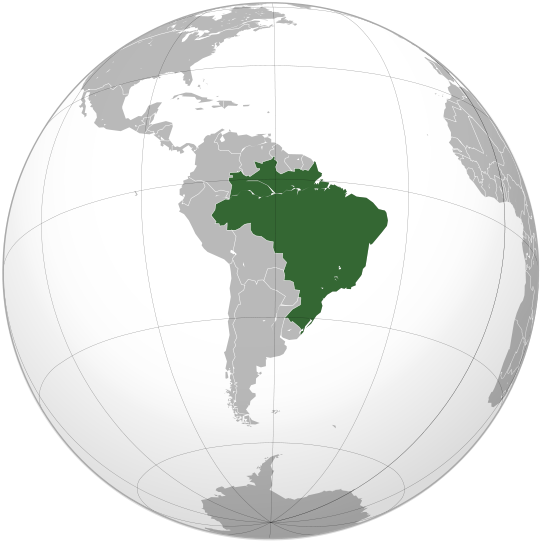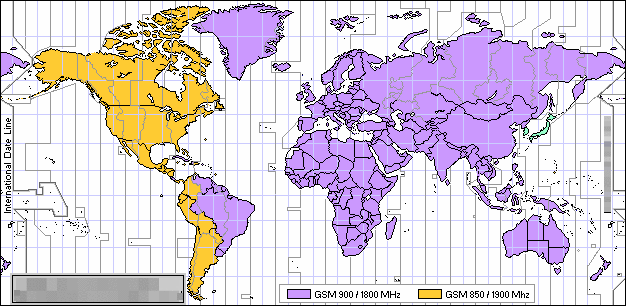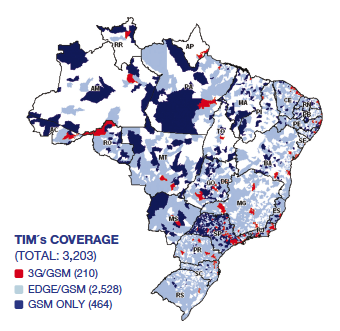|
[Mobile Communications] - Brazil
Mobile communications in Brazil are pretty well developed. But it can be said not about the whole country, because north western regions lack not only mobile communications, but even basic stationary land line phones. That's a pretty common problem for countries of Latin America, for example Mexico has the same issues with communications in mountain regions.
Major mobile carriers here are TIM, Claro, Vivo and Oi. We should also mention the fact that TIM and Vivo are the only nationwide mobile carriers, while Claro operates in all states except Amazon basin states. Oi is not nation wide too and their services are limited.
But the biggest carrier on the Brazilian market is TIM. It's telephony network is nationwide and is based on the GSM technology. That company has a range of almost 94% of Brazilian urban population and is available in 3203 cities. All the carriers in Brazil provide a mobile internet access based on GPRS and EDGE technologies. EDGE technology is available in 79% of GSM covered area of the country.
All of those carriers provide GSM services and GSM standard in Brazil is similar to US and Canada. It uses 900/1800 MHz frequencies to transmit voice calls and text messages, so if you are planning to visit this country and have a GSM 900/1800 mobile phone it will be really convenient to purchase a local SIM card. As you can see Brazil uses so called European GSM standard and if you a traveling for the US – your mobile device won't work in their networks.
3G service is also presented in this country and it works with a most widely spread 2100 MHz frequency, but TIM provides both 2100 MHz and WCDMA, that uses 850 MHz for 3G. Mobile Internet is available mostly in big cities, the coverage in rural areas is pretty weak and sometimes even unavailable. But 3G market grows pretty fast in Brazil, it is pretty obvious because the share of 3G enabled smartphones sold in Brazil grows and in 2012 12 million of 3G enabled devices were sold here.
Another reason of such fast market growth is the fact that mobile communications are rather cheap in Brazil, but on the other hand, roaming is very expensive, so if you are a tourist – make sure to buy a local SIM card, they are sold free here. Also we should admit that 3G Internet access is available to 54% of urban population of Brazil.
And now a couple of words about 4G. Brazil is building its 4G network now and it will be launched soon. Now major mobile carriers are getting licenses for broadcasting at 4G frequencies. 4G coverage will probably be available on the same territory, where 3G is presented.
As we have already mentioned Brazil has rather poor coverage in a sparsely populated areas, but all those four major carriers provide mobile services for almost 98% of the Brazilian population. As a short conclusion we ca say that mobile communications grow pretty quickly in Brazil and most of the problems with mobile coverage are caused by the lack of investment and low populations in some areas. |
|
FAQ - Brazil : 5G Cell Phone Signal Jammer | GPS WIFI Blocker for Sale | Jammer Store
 Shopcart:$0.00
Shopcart:$0.00







